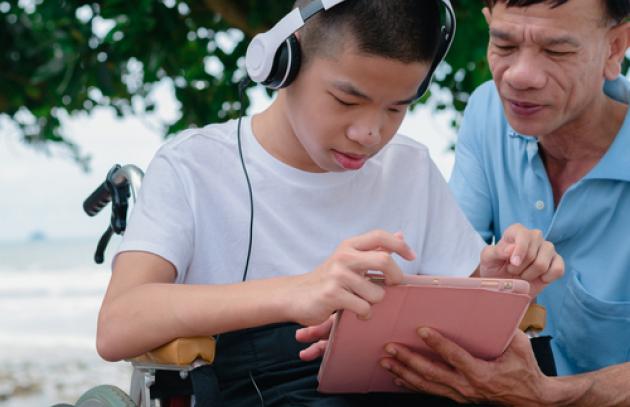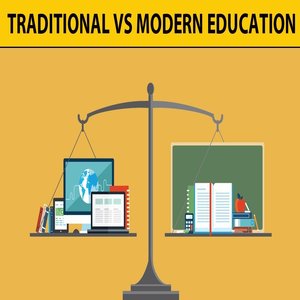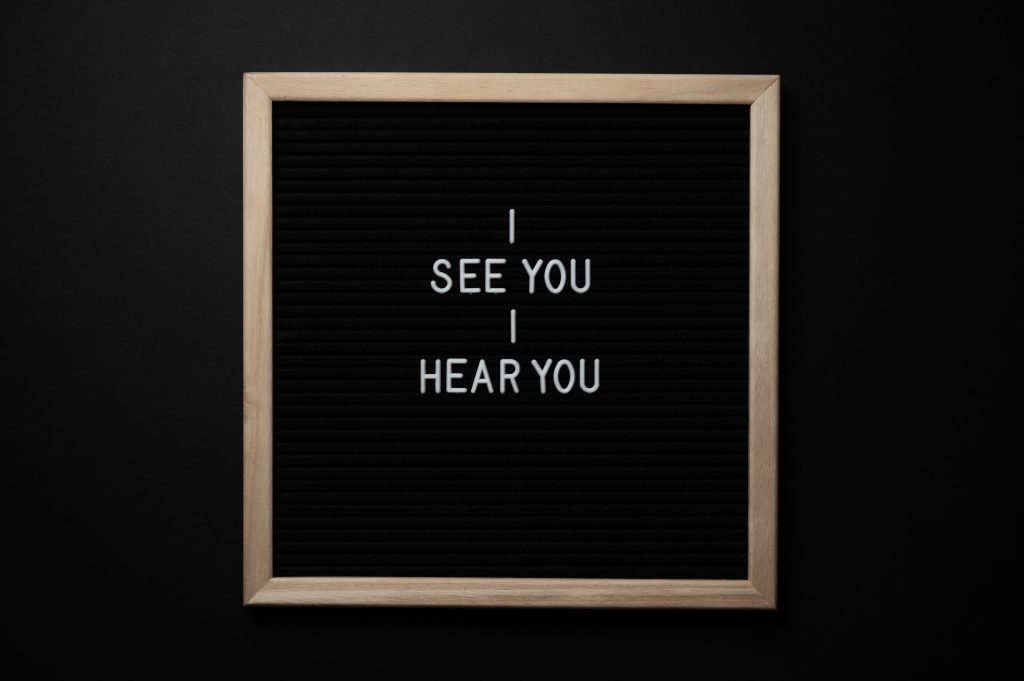# Debate 3 & 4
# Debate 3 (Schools should no longer teach skills that can be easily carried out by technology)
It was a restless week. This being the first debate of my very first course, it was overwhelming for me. So, the topic for my debate was whether schools should teach basic skills like Cursive Writing, Spelling, and Multiplication Tables or not. Nobody thought that this would lead to such a heated debate. All the participants were so passionate about the topic. For this debate, I got the chance to work with Leah, who not just helped me in going through the debate, but is also so positive and full of knowledge. I was on the agree side and so we supported the argument that schools should no longer teach skills that can be carried out by technology.
It becomes very difficult to be on the agree side when you don’t agree with the topic. When it comes to ‘BASIC SKILLS’, I feel they are important for a kid to learn. However, the words are little molded in the topic.
Spellings- I believe that Spellings are important to be taught in the initial schooling days, but phonics is more important so kids can learn to spell the words by listening to the sounds rather than learning the whole words. Gone are days when kids used to learn C A T – Cat, Phonics has taken over the place of that, and has become extremely beneficial for kids, especially those who are not Native English Speakers.
Cursive Writing- Well, I am not a person who has good handwriting, but mine is legible. I don’t think learning ‘CURSIVE’ especially is gonna be beneficial for kids as many of them ultimately develop their different kinds of handwriting. What is important is the Penmanship that is needed and every child should learn that.
Multiplication Tables- The concept of multiplication is extremely important in Mathematics. It is the basis of many higher-level calculations, but memorizing the tables is not as important as understanding the concept. Rather than focusing more on Rote Learning of Tables, the focus should be on concept building in schools.

However, the debate was whether these skills should be taught or not as they can be carried out by technology. We can not deny the fact that even those who learn these skills ultimately move to technology to carry out their daily tasks. No one wants to invest so much time in writing when they can type easily and comfortably. When the calculator is there in our phones that we carry everywhere, nobody wants to go with the trouble of calculating mentally. Same with spelling, we have software and applications that help us correct our spelling and grammar, and we all use that very often.
Summing Up Agree Side
Time for meaningful learning: By using technology for doing the basic tasks, students will get more time for meaningful learning tasks that will help them in the future. Basic skills can be carried out conveniently by technology and so more time should be invested in promoting students’ creative thinking.

Equitable & Inclusive Education: Students’ learning becomes more inclusive and equitable when it is done with the help of technology. The use of technology in special education or learning disorders helps break the barriers for people with disabilities and provides them with access to the most relevant educational programs.
Unbiased Assessment and Feedback: It is mostly seen that handwriting legibility systematically biases evaluations. Highly legible handwriting results in more positive evaluations than less legible as a result, students who have good handwriting tend to gain more marks compared to the ones with less impressive handwriting.
Student-Centered Learning: Technology enables students to learn at their own pace and repeat the lesson N number of times. Also, there is no fear of performance. The weaknesses of students are not highlighted and thus students gain the courage to perform better.
Summing up Disagree Side
Spelling: It is critical to learn spelling skills for seeking employment as a profile with spelling errors is not impressive and often leads to rejection. Also, many individuals can not afford the equipment and so can not rely upon spell check software.
Cursive Writing: It can help in increasing hand-eye coordination and can improve reading skills and comprehension. It can help in writing compositions and putting down students’ thoughts. It is also seen that those who take notes using pen-paper tend to process the information more than those who type and hence it is very important to teach cursive writing skills to students.
Multiplication Tables: It is important to teach these skills to students when become dependent upon calculators for these basic skills they lack the understanding of higher-order skills. Dependence on calculators diminishes critical thinking and widens the digital divide since everyone can not afford a calculator.
Final Thoughts

A very common question that arose by the end of the debate. What if there’s no electricity or no Wi-Fi. Then what? Well, that is a serious question and when we can not have the technology or even if we have it but it isn’t working. Then we move to traditional learning. The basic skills are hence needed and are very important to be taught however, cursive writing and penmanship are two different things and every child should know how to write, even if they choose not to write when they grow up.
In the end, I feel a balance is what is needed between modern education and traditional one. Both should go hand in hand so that we can build better students for the future. I also agree with Brooke when she wrote in her blog, that the purpose of these debates is not to prove one side correct and the other wrong but to shed light on both sides so we can work for the betterment of our students.
# Debate 4 (Educators have a responsibility to use technology and social media to promote social justice)
When it comes to social issues, people always have different sides and these sides divide society into groups. Even in the schools, it can be seen that the groups are made with different opinions flowing. Teachers, Students, and Parents all have different opinions. And so, in such an environment, can the teacher be a social activist and support one view over the other, especially when it comes to controversial or sensitive issues? An article shared by Kari, Jennifer, and Jessica says that a social platform is a great place for youth to connect and share their opinions. The authors gave examples of how they created a social media outlet for their students to connect with other kids of their age to learn about and help in times of turmoil and need. These types of communities benefit both sides, one learns humility and generosity and the other learns they are not alone and have others to reach out to.
Social media can be a powerful tool but one must know about all the pros and cons it brings along. Educators often feel feared to discuss anything on social platforms as it can come back to them negatively. And so many of us do not want to go through all the hassle.

I feel that instead of taking sides teachers should encourage students to get to the source of what they read on social media. It encourages Digital Citizenship and also helps teachers to be political in a diplomatic way. The article shared by Brooke and Dalton discusses fear in teachers but through student’s views “as long as the educator in no way tries to influence the student’s opinion, they should be allowed to share their views”. I agree that educators have a responsibility to educate students about social issues. With the constant scrutiny over teachers, it can be difficult for teachers to discuss social justice issues, especially those that are controversial. Does society expect teachers to cross parents’ boundaries and take political stances? Perhaps, but also perhaps not. There are other ways to educate our kids about social justice, social media should not be the only platform to focus upon. Students follow up the path that teachers show them and sometimes it leads them to not being able to think critically. I agree that teachers should discuss social justice issues with their students, but it should be done in a way that is not controversial.
However, many Facebook, Twitter, and other social media accounts are now being used for online activism. These social media networks are a relevant method of communication for many educators. Educators should use these tools to promote conversations about justice and equity in all aspects of life. Technology can be leveraged to bring awareness to injustices in all areas of life, support activism, and amplify voices in the community.

The idea of neutrality does not often work in school since ‘ education is inherently political. By being neutral, we cannot educate our kids to know the difference between facts, fiction, and opinions. And so, it becomes crucial for educators to talk about social issues in and outside the classroom. However, it depends on one’s belief and interest in how much a teacher wants to get invested in being socially active after school hours. There should not be a burden on teachers to promote one view just because it is another task added to their job.
Sushmeet
Debate number 3 school should no longer teach skills that can easily be carried out by technology in my vote I disagree the article quote school is boring and irrelevant UN quote the students need innovative skills and need motivation to succeed they also need to be competitive in a globalized workforce they need to be able to create and be apart of innovative driven economy end. The old school ways are in today’s society vintage but vintage is worth money today old way of school with every aspect of sub subject of learning needs to be brought back. In order to learn with technology to keep kids creative, motivated and keep them exceling in their learning. Thus reducing the idea that quote school is boring and irrelevant UN quote I think this article is portraying a teachers complacent attitude towards teaching and their lack of technological skills. A renewed passion for teaching and a robust fever from learning students who are willing to motivate to learn and to create. This will lead to motivating their peers also. The article gives awareness to terminology like menial tasks. Intrinsic motivation, deep insight and wisdom, creative abilities, and technology is essential to society. I think the debate was presented well with good articles. It offered great information and it reminded me of my difficulties with technology in my day and age. I also think of the positives for young people to excel and create the best things possible with technology, that will advance their age and knowledge. Another idea from the disagree debate I was listening to spelling errors grammatical error age old negative impact technical availability I think technology reduces grammatical error. The critical thinking skills are more actively addressed with repetition of skills and old school teaching, using technology teaches but not effectively as all school teaching by repeatedly teaching skills to read write and create I think electronic handwriting is adaptable but handwriting with real hands is a skill that needs to be repeatedly learned in order to master it. It was a great debate and I learned some new terminology and I learn some new ideas and I was very grateful for all the information thank you